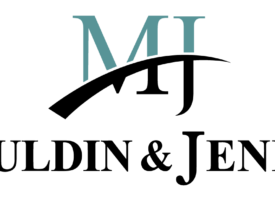The U.S. business taxation system is rarely cited as overly simplistic, but for creators and resellers of software-as-a-service (SaaS), navigating its complexities becomes an especially demanding task. While the lack of a national sales tax might seem beneficial for international technology and software companies, it actually opens the doors for a maze of state-level policies and regulations that make compliance highly challenging.
Following the , SaaS providers must contend with myriad sets of rules around sales tax set by the states – and yes, that’s ‘states’ plural. Some states don’t tax these products and services at all, whereas others treat them as fully taxable transactions and still others partially tax sales or tax them only under certain circumstances. Given the variety and complexity of sales tax laws governing SaaS, foreign-based tech companies can be forgiven for blanching when faced with this daunting compliance landscape.
Determining economic nexus
Prior to Wayfair, there was a good chance that your SaaS transactions were not subject to tax in states where the company did not maintain a physical presence sufficient to establish nexus. With physical presence no longer a requirement, states have quickly adopted their own rules regarding nexus. Most now make the decision based on the number of customers, number of individual transactions or total amount of revenue that sellers have within the state, or some combination of these factors.
A business that provides SaaS to users in multiple states may have economic nexus in many of these locations, based on varying criteria that must be assessed individually for each state. And wherever nexus exists, the business must collect, report and remit sales tax. Additional city or county-level tax obligations may also exist.
Which sales are taxable?
Taxation questions don’t stop with the determination of nexus; even where nexus is clearly established, states may categorize SaaS in different ways, creating yet more variation in the taxability and potential opportunities for tax exemption that apply to these sales.
States typically classify SaaS either as tangible personal property or as computer services/digital services. Here again, states may opt to tax one, both or neither categories. Some even distinguish between SaaS purchases intended for personal and business use. How the software is delivered and accessed can also impact the way it is treated for tax purposes.
Assessing taxable sales within each jurisdiction requires a detailed understanding of how the state defines SaaS as well as the tax policies that apply to such transactions.
Location, location, location
Unlike with physical products, buyers’ geographic location may be entirely irrelevant to their ability to purchase, receive and consume SaaS. This opens the vast U.S. market to international technology providers, but it also creates a host of geography-based sales tax challenges for companies conducting cross-border transactions.
Even if an address is required for credit card processing, it may not reflect the end user’s home or business address – or that of the buyer. Similarly, the computer used to download software may not be located in the buyer’s state of legal residence, nor the state where other licensed users reside. Multi-user licenses may cover end users located in states across the U.S. and beyond.
Issues like these form one more barrier to sales tax compliance for SaaS providers. Many don’t typically collect location data from their customers – and yet this information is critical for accurate revenue sourcing to facilitate sales tax compliance. Companies that intend to deliver SaaS in the U.S. must ensure their customer information intake systems include adequate location data to meet tax collection and reporting requirements.
Tax collection, reporting and administration
Even with a clear understanding of sales tax laws in each state where the company serves SaaS customers, the ongoing obligation of tracking, collecting, remitting and reporting sales tax-related information in each location remains an onerous one.
Deadlines for sales tax reporting and remittance vary between states, as does the requirement to register and file returns in periods without taxable sales (or when taxable sales fell below a state-specified threshold sufficient to establish economic nexus).
Providers must ensure their data collection and retention processes allow complete documentation of revenue, customer location, taxable sales, returns, exemptions and all other information required by states in which they do business. Internal accounting, too, must be tailored to meet reporting demands and other rules set by individual states.
Specialized expertise is key in a dynamic taxation environment
The popularity of SaaS is growing rapidly, with businesses and individual consumers increasingly turning to this model. As technology providers around the globe compete for their share in this lucrative market, it is imperative that they receive guidance from trusted, U.S.-based advisors who can safely shepherd them through the maze of state sales tax considerations they face.
The experienced sales tax team at Mauldin & Jenkins offers specialized knowledge and skills to help both domestic and international SaaS providers comply with all sales tax obligations and thrive in a competitive environment. Contact Jeff Dorris, SALT Practice Leader and Sales Tax Simplified Professional at jdorris@mjcpa.com to learn how we can help your business.


